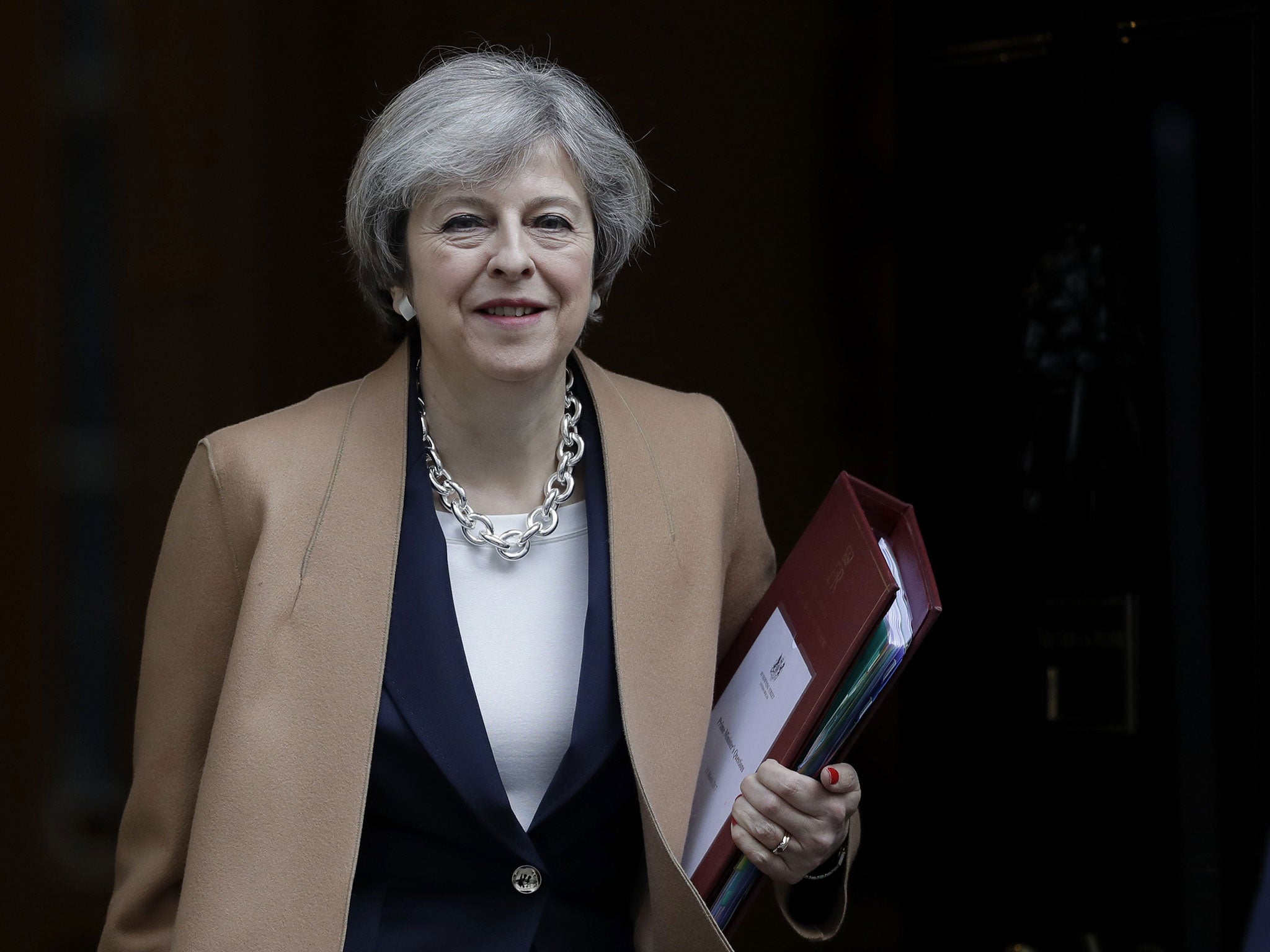The National Insurance U-turn shows that this lady is for turning

Your support helps us to tell the story
From reproductive rights to climate change to Big Tech, The Independent is on the ground when the story is developing. Whether it's investigating the financials of Elon Musk's pro-Trump PAC or producing our latest documentary, 'The A Word', which shines a light on the American women fighting for reproductive rights, we know how important it is to parse out the facts from the messaging.
At such a critical moment in US history, we need reporters on the ground. Your donation allows us to keep sending journalists to speak to both sides of the story.
The Independent is trusted by Americans across the entire political spectrum. And unlike many other quality news outlets, we choose not to lock Americans out of our reporting and analysis with paywalls. We believe quality journalism should be available to everyone, paid for by those who can afford it.
Your support makes all the difference.Theresa May is finding out the hard way that trying to fix the public finances with a slender parliamentary majority is a tricky business. The U-turn on National Insurance contributions for the self-employed suggests not merely a lack of resolve on the Conservative leadership’s part, but a lack of feel for sentiment on their own back benches, in their usual friends in the media, and their supporters in the country.
In retrospect it seems obvious that the last thing the “party of business” would wish to do is to attack businesspeople – but why didn’t it strike the Chancellor before he made his Budget, or the Prime Minister who was briefed on its details? Without the numbers in the House of Commons to force such difficult measures, and with the determination to reduce the deficit undimmed, these kinds of defeats are inevitable – even more so for a Government bound by a foolish manifesto pledge, turned into law, not to raise income tax, national insurance or VAT. Even in the best of times, chancellors need flexibility.
The NIC’s U-turn, then, joins the embarrassment of David Davis’s admission that the Government has no idea what a hard Brexit would cost the country, and the revelation that the great grammar schools expansion is essentially unfunded and overambitious in a classically bad week for the Government. So, far from being the sure-footed, careful and well-prepared grammar schoolgirl of her propagandists, Ms May is emerging as rather accident-prone as well as irresolute. This lady, clearly, is for turning, even when she has taken her time to make her mind up.
Sooner or later she will have to concede a second referendum on Scottish independence to her counterpart at Bute House. Of course, the timing of such a vote could hardly be less ideal from the point of view of the UK’s negotiators, but Scotland has a perfect right to ask for a vote and for that request to be granted. So far it is Nicola Sturgeon who is leading the most effective opposition to the Government, which is hardly ideal on a variety of grounds. If Jeremy Corbyn and the Labour Party were remotely offering a realistic alternative government then Ms May and Philip Hammond would be suffering much more. As it is they enjoy such commanding leads in the polls that they can blunder almost with impunity.
All this, then, and Article 50 hasn’t even been triggered yet, itself subject to an unexpected delay. As British ministers grind their way through the exit negotiations there are bound to be more upsets and disappointments along the way, culminating in a deal that upsets both sides in the debate, not least within the Conservative Party itself.
The referendum result last year and the arrival of Ms May in Downing Street left the Tories in an unexpectedly strong and united position – but that may not last. Nor will the “honey war” that has seen the economy sail serenely through the immediate aftermath of the Brexit vote. As the Office for Budget Responsibility has already stated, investment, trade, employment and living standards are all set to suffer over the next few years, and with them the public finances. There will, therefore, be more spending cuts and tax rises as the Treasury does its best to build the best defences it can against the turmoil Brexit will bring. Ms May’s party will find many of them no more to their liking than the hike in National Insurance. There will be more U-turns.
Join our commenting forum
Join thought-provoking conversations, follow other Independent readers and see their replies
Comments